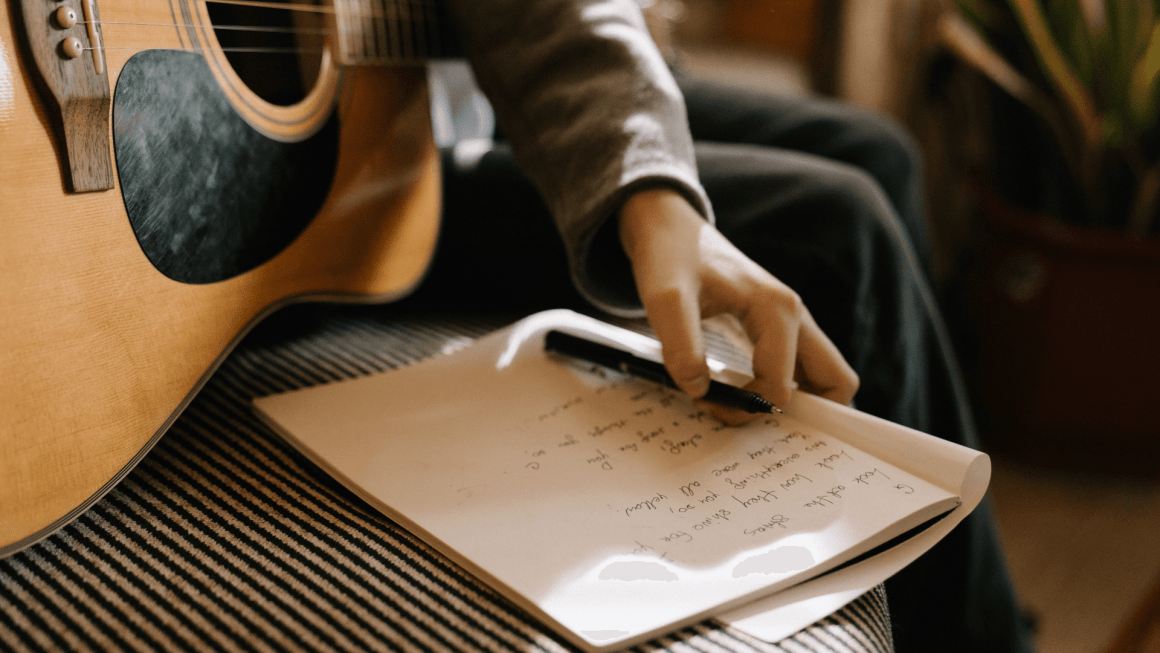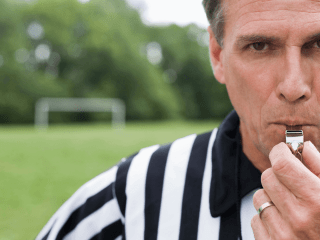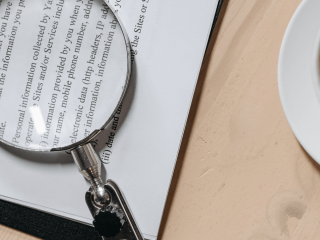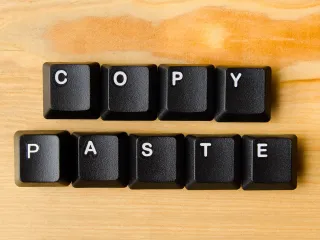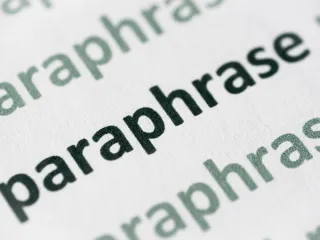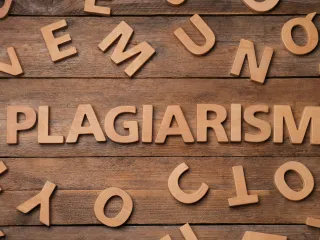The 10 Most Famous Plagiarized Songs
Plagiarism is defined as the “wrongful appropriation” and “purloining and publication” of another author’s “language, thoughts, ideas, or expressions,” and the representation of them as one’s own original work. Plagiarism is a serious offense in academia and literary circles, but what about the music industry?
When it comes to music plagiarism, the topic is more controversial than you might expect. Although there are many examples of legitimate borrowing in music (also known as sampling), when disputes arise about who really wrote a song the process of attribution becomes much more complicated.
For years, rumors have stirred around some of your favorite songs in regards to plagiarism. In fact, some cases have resulted in settlements and others have even gone to court. While a few of the songs included in this list might not be direct copies of each other, they do share notable similarities with other songs.
In recent years, Ed Sheeran has had to deal with copyright infringement lawsuits for the song “Thinking Out Loud.” The copyright holders claimed that “Thinking Out Loud” infringes upon Marvin Gaye’s “Let’s Get It On,”. The latest plagiarism case may cost the singer 100 million dollars. The groundbreaking grunge band Nirvana also faced gossip about their song “Smells Like Teen Spirit”. Many people compared it to Boston’s hit “More Than a Feeling”.
The ten songs on this list include songs by international pop stars and groups as well as some lesser-known artists. Some songs have been written and composed by multiple people, while others involve one person taking credit for another artist’s work. But even if you don’t know the names of the artists listed here, you’ve most likely heard these songs.
1. “Blurred Lines” by Robin Thicke and Pharrell Williams
The catchy hit song “Blurred Lines” spent 12 weeks at No. 1 on the Billboard Hot 100, becoming the year’s longest-running single in the United States. Unfortunately, it’s success came at a price and with great controversy.
The song, co-written and performed by singer/songwriter Robin Thicke and Pharrell Williams, found itself at the center of a plagiarism accusation. Marvin Gaye’s children accused the song of being a copy of their father’s 1977 hit “Got to Give It Up.” Without admitting guilt, Thicke and Pharrell Williams eventually settled out of court with the Gaye family. The lawsuit was filed on December 15, 2013, and had a drawn-out legal battle. The Gaye estate initially won more than $7 million dollars but the amount got reduced to $5 million dollars.
2. “My Sweet Lord” by George Harrison
In 1971, a claim of plagiarism was brought against the Beatles’ George Harrison for his song, “My Sweet Lord.” The claim alleged that the title track was culturally similar to Ronnie Mack’s 1963 single “He’s So Fine,” which had been recorded by the New York girl group, The Chiffons. The case came before the court in December 1976, with George Harrison testifying he had never heard “He’s So Fine” until after the release of “My Sweet Lord.” The case was closed after an out-of-court settlement deemed that Harrison subconsciously plagiarized Mack’s tune. However, litagation and appeals continued until 1998 – shortly before Harrison died. $587,000 was the final settlement amount.
3. “Creep” by Radiohead
The band, The Hollies, accused Radiohead of plagiarism after the release of “Creep.” The Hollies claimed that “the melody and rhythm of ‘The Air That I Breathe’, appears in ‘Creep’ without their permission. After a successful plagiarism lawsuit, The Hollies still receive co-writing royalties from “Creep.“
“Creep” also made headlines in 1992, when songwriters Albert Hammond and Mike Hazelwood sued Radiohead for $1 million over the similarities between it and their composition, “The Air That I Breathe.” The pair had released the song in 1972 as part of a collaborative effort between themselves and then-bandmates John Bettis and Jon Lind. Radiohead was ultimately found not guilty, with the presiding judge ruling that while the songs were similar at points, “Both songs express feelings of powerlessness in dealing with others and frustration at being a social outcast.”
Meanwhile, singer Lana Del Rey was accused of plagarizing from “Creep” with her song, “Get Free.” She went on to deny such accusations. The British band settled the dispute with the singer and got songwriting credit.
4. “Come Together” by The Beatles
The historic songwriting duo of John Lennon and Paul McCartney is no stranger to accusations of plagiarism. In 1969, the copyright infringement lawsuit Verve Music vs R.S.G. was filed against The Beatles’ “Come Together” for its similarities to Chuck Berry’s 1959 hit “You Can’t Catch Me.” The case was brought before the court in 1993, with Paul McCartney testifying that he wrote the song after listening to a playback of his newly recorded album.
While it is widely acknowledged that McCartney used the riff from “You Can’t Catch Me,” he did so with the permission of Berry’s publisher, who had contacted EMI to grant The Beatles a license to use the riff. John Lennon was said to have contributed the line “Here come old flat top, he come grooving up slowly,” which he lifted from Berry’s original lyrics.
5. “Viva la Vida” by Coldplay
In 2010, Joe Satriani filed suit against Coldplay for copyright infringement, claiming that “Viva la Vida” lifted sections of his instrumental track “If I Could Fly” from his 2004 release, Is There Love in Space? Coldplay denied the allegation, with Chris Martin testifying that he had never heard of Satriani nor listened to his music. The case was settled out of court for an undisclosed sum.
6. “Stairway to Heaven” by Led Zeppelin
In 2014, the estate of Randy Wolfe (formerly Randy California) filed a lawsuit against Led Zeppelin for copyright infringement over “Stairway to Heaven.” Robert Plant and Jimmy Page were defendants in the case, with the complaint claiming that both men had committed plagiarism by lifting elements from Spirit’s 1968 instrumental tune “Taurus.” The case went to trial in June 2016, with the jury ruling that Page and Plant had not plagiarized “Taurus.”
7. “Ghostbusters” theme song, by Ray Parker Jr.
The iconic “Ghostbusters” theme song was originally co-written by Ray Parker Jr., though he only received credit for his contribution years after its release. Huey Lewis sued Parker over the similarities between “Ghostbusters” and Lewis’ 1984 hit “I Want a New Drug.” The case was settled out of court, with an agreement that restricted further use of the song in media.
8. “Bitter Sweet Symphony” by The Verve
The Verve’s iconic tune features prominent samples from the Andrew Oldham Orchestra’s cover of “The Last Time” by The Rolling Stones. A lawsuit was filed against the group in 1997, with Mick Jagger and Keith Richards claiming that they never gave permission to use their recording. As a result, songwriting credit for “Bitter Sweet Symphony” was awarded to Jagger, Richards, Richard Ashcroft, and Nick McCabe of The Verve.
9. “I Won’t Back Down” by Tom Petty
In April 2014, a lawsuit was filed against Sam Smith for copyright infringement over the similarities between “Stay With Me” and “I Won’t Back Down.” In court, Petty testified that he had been approached to write a song for the film “She’s The Man,” but turned down the offer as he had just released a greatest hits album. Petty and his lawyers claimed that Smith consciously copied elements from “I Won’t Back Down” to appeal to fans of the rocker. The case was settled out of court for an undisclosed sum, with Smith writing an apology letter to Petty.
10. “Under Pressure” by Queen and David Bowie
David Bowie’s 1981 song “Under Pressure” was the result of a collaboration with Queen, but neither party claimed songwriting credits at release. Having written the track alone in his Berlin studio, Bowie did not credit himself for writing the hit single because he had taken cocaine while recording it. Under questioning from the song’s publisher, Bowie later admitted that he had written “Under Pressure.”
In 2016, David Bowie and Queen pursued legal action against rapper Vanilla Ice due to similarities between “Ice Ice Baby” and “Under Pressure.” According to Queen, the rapper had copied “substantial original portions” of the song. The case was settled out of court for an undisclosed sum.
Final Thoughts
Plagiarism is something many artists and writers have dealt with throughout history. Despite new laws and stricter regulations, it is still possible for an artist to claim ownership over a song or piece of work without giving proper credit to the true creator(s). Whether or not an artist is guilty of a plagiarized song depends on the context and the court’s interpretation.
The songs on this list have been specifically cited in court for copyright infringement. Some cases were settled out of court, while others went to trial and reached verdicts before a judge or jury.
If you are a creative professional such as a writer or musician, it pays to know the difference between conscious copying and unconscious inspiration. Quetext’s plagiarism checker can help make sure your lyrics are completely your own, and is easy to use and free.

